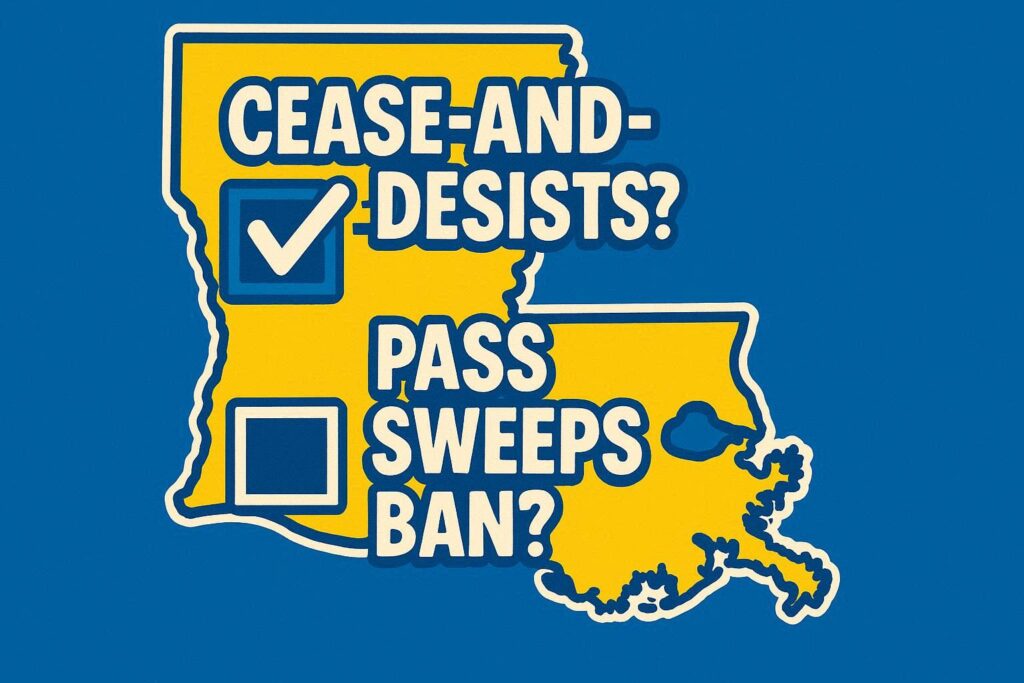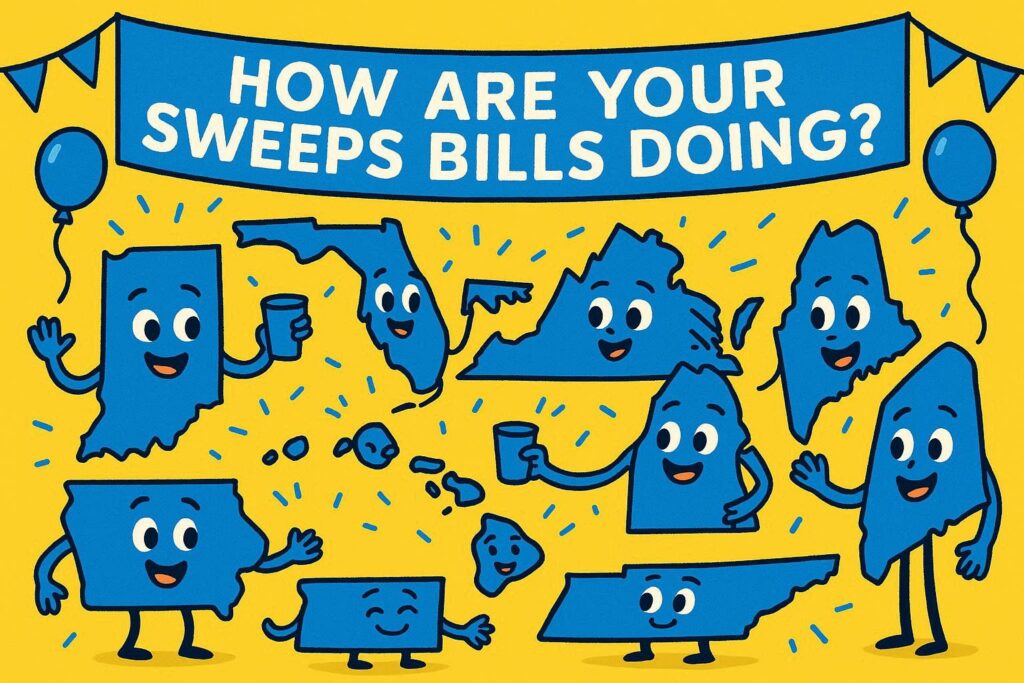A webinar hosted by Indian Gaming Association execs Victor Rocha and Jason Giles on Wednesday amounted to a victory lap around California’s sweepstakes casinos ban and an echo chamber regarding tribes’ anticipated demise of prediction markets.
While bullish investors are funneling billions of dollars into prediction markets, count Rocha and Giles among the bears. Their forecast, of course, is deeply rooted in self-interest, as they see prediction markets as a threat to tribal gaming.
They snuffed out a similar threat posed by sweeps casinos in California, as Assembly Bill 831 flew unanimously through the state legislature and has little chance to be vetoed by Gov. Gavin Newsom, and they plan to do the same to prediction markets.
“That’s the next big fight, and we tribes are well situated for that,” Giles proclaimed.
Polymarket’s US entry is imminent. Kalshi is already here in a big way. Underdog is entering the space with Crypto.com. Meanwhile, FanDuel has teamed up with contract trading platform provider CME Group, and DraftKings lurks – developments of which Rocha is particularly wary.
But as prediction markets move forward with the blessing of the Commodity Futures Trading Commission, states and tribes are pushing back, claiming these companies are operating as illegal sportsbooks.
“It feels like a bunch of people playing hide-and-seek but all running into the same place,” Rocha said. “… It’s a matter of time for the legalities to catch up to these guys — they know it, we know it — and that’s exactly what happened with sweepstakes.”
The duo chose not to answer questions from webinar attendees.
Presidential aspirations leading Newsom to inaction?
AB831 was ultimately passed by the California Assembly on Sept. 12, and Gov. Newsom has until Oct. 12 to sign or veto. Should he do neither, the bill becomes law on Jan. 1.
Newsom, Rocha anticipates, will choose inaction — effectively the same thing as signing the bill — for political reasons.
“Right now, I would say he lets this thing go,” Rocha said. “He doesn’t sign it, it becomes law, and everybody wins except the sweepstakes.”
“Why wouldn’t Newsom sign it, though?,” Giles asked.
“He wants to be president, man, you know what I mean?,” Rocha responded. “He wants to be president. He doesn’t want to piss off the 18 to 35 demo.”
Standing up to CFTC
With Donald Trump in office, prediction markets have the tacit endorsement of the federal government. The National Indian Gaming Commission (NIGC), Giles and Rocha believe, has a responsibility to disrupt that flow.
In June, Trump withdrew his nomination of John Simermeyer as NIGC Chair. The current Acting Chair, Sharon M. Avery, is a Joe Biden appointee.
“I don’t expect a Trump-nominated person to come out against prediction markets over at the NIGC, but then again, tribes fully fund that agency,” Giles posited. “I think we’ve got some say here on what they’re gonna allow and what they see as acceptable. …”
“Why are we supporting this agency that’s not protecting [our gaming interests] and doing what they’re supposed to do, regulating gambling on the reservation, [while] we’ve got all these prediction markets coming and going off the reservation,” he wondered.
“What do you say NIGC? You gotta say something to the CFTC.”
Is crypto gambling operator Tim Heath canary in coal mine?
Tim Heath announced earlier this week that he’s pulling Sportsbet.io and Bitcasino.io, crypto sportsbook and casino brands, respectively, from gray markets and pivoting to a b-to-b gaming vendor deal in the United Arab Emirates under the consolidated Yolo.com brand.
The move comes as companies face mounting pressure from regulators not to operate in gray markets.
“It has become abundantly clear that domestic regulators who are offering licenses are not keen on other group operations continuing to operate in pre-regulated markets,” Heath wrote on Substack. “In other words, you cannot be white and grey; you have to pick a side.”
Heath is reportedly worth about US$1.85 billion, and Sportsbet.io and Bitcasino were drawing an estimated $2.65 billion in monthly handle, largely from cryptocurrencies.
Rocha believes Heath’s withdrawal is a sign of things to come in the US.
“Eventually this will shut down, eventually we will have another Black Friday,” he asserted. “It’s just whether it comes from the courts, whether it comes from legislation, but something’s gonna happen.”
While CEOs like Sporttrade’s Alex Kane and Kalshi’s Tarek Mansour “understand and see the intersection of crypto and gambling better than a lot of people,” crypto regulations are tightening around the world, Giles warned.
“You can see how governments are gonna start to get more involved in the crypto space, so you don’t wanna be a black market player trying to say, ‘Hey government, you can trust what I’m doing in crypto.”
Rocha’s violent imagery
Rocha continued to resort to violent analogies as he vowed to keep fighting gray-market operators.
“Once we finish putting the stake through the hearts of these sweepstakes companies,” DFS-plus and prediction markets are next on the agenda, he said.
“We will be talking about why it’s such a threat to tribal gaming, and people who are in that market need to be concerned — that is FanDuel and DraftKings and everybody else who’s in that market.”
He also offered this preview of his presence at the ICE conference coming up in January: “We’re gonna take the fight to Barcelona, too. We’re gonna be talking about sweepstakes and prediction markets in Barcelona. We’re gonna take our show on the road over there and, we’re coming back with some scalps.”
Such imagery has not sat well around the gambling industry. We get the feeling Rocha doesn’t mind.








